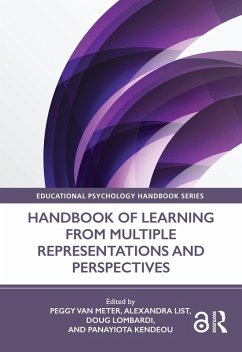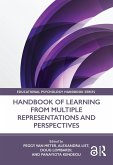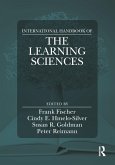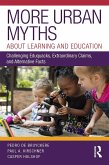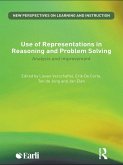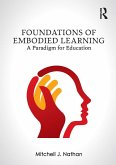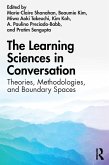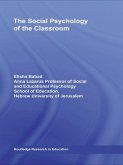Handbook of Learning from Multiple Representations and Perspectives (eBook, PDF)
Redaktion: Meter, Peggy van; Kendeou, Panayiota; Lombardi, Doug; List, Alexandra
105,95 €
105,95 €
inkl. MwSt.
Sofort per Download lieferbar

53 °P sammeln
105,95 €
Als Download kaufen

105,95 €
inkl. MwSt.
Sofort per Download lieferbar

53 °P sammeln
Jetzt verschenken
Alle Infos zum eBook verschenken
105,95 €
inkl. MwSt.
Sofort per Download lieferbar
Alle Infos zum eBook verschenken

53 °P sammeln
Handbook of Learning from Multiple Representations and Perspectives (eBook, PDF)
Redaktion: Meter, Peggy van; Kendeou, Panayiota; Lombardi, Doug; List, Alexandra
- Format: PDF
- Merkliste
- Auf die Merkliste
- Bewerten Bewerten
- Teilen
- Produkt teilen
- Produkterinnerung
- Produkterinnerung

Bitte loggen Sie sich zunächst in Ihr Kundenkonto ein oder registrieren Sie sich bei
bücher.de, um das eBook-Abo tolino select nutzen zu können.
Hier können Sie sich einloggen
Hier können Sie sich einloggen
Sie sind bereits eingeloggt. Klicken Sie auf 2. tolino select Abo, um fortzufahren.

Bitte loggen Sie sich zunächst in Ihr Kundenkonto ein oder registrieren Sie sich bei bücher.de, um das eBook-Abo tolino select nutzen zu können.
Handbook of Learning from Multiple Representations and Perspectives provides a path for understanding the cognitive, motivational, and socioemotional processes and skills necessary for learners across educational contexts to make sense of and utilize information sourced from varying inputs.
- Geräte: PC
- ohne Kopierschutz
- eBook Hilfe
- Größe: 5.45MB
Andere Kunden interessierten sich auch für
![Handbook of Learning from Multiple Representations and Perspectives (eBook, ePUB) Handbook of Learning from Multiple Representations and Perspectives (eBook, ePUB)]() Handbook of Learning from Multiple Representations and Perspectives (eBook, ePUB)105,95 €
Handbook of Learning from Multiple Representations and Perspectives (eBook, ePUB)105,95 €![International Handbook of the Learning Sciences (eBook, PDF) International Handbook of the Learning Sciences (eBook, PDF)]() International Handbook of the Learning Sciences (eBook, PDF)121,95 €
International Handbook of the Learning Sciences (eBook, PDF)121,95 €![More Urban Myths About Learning and Education (eBook, PDF) More Urban Myths About Learning and Education (eBook, PDF)]() Pedro De BruyckereMore Urban Myths About Learning and Education (eBook, PDF)31,95 €
Pedro De BruyckereMore Urban Myths About Learning and Education (eBook, PDF)31,95 €![Use of Representations in Reasoning and Problem Solving (eBook, PDF) Use of Representations in Reasoning and Problem Solving (eBook, PDF)]() Use of Representations in Reasoning and Problem Solving (eBook, PDF)60,95 €
Use of Representations in Reasoning and Problem Solving (eBook, PDF)60,95 €![Foundations of Embodied Learning (eBook, PDF) Foundations of Embodied Learning (eBook, PDF)]() Mitchell J. NathanFoundations of Embodied Learning (eBook, PDF)41,95 €
Mitchell J. NathanFoundations of Embodied Learning (eBook, PDF)41,95 €![The Learning Sciences in Conversation (eBook, PDF) The Learning Sciences in Conversation (eBook, PDF)]() The Learning Sciences in Conversation (eBook, PDF)41,95 €
The Learning Sciences in Conversation (eBook, PDF)41,95 €![The Social Psychology of the Classroom (eBook, PDF) The Social Psychology of the Classroom (eBook, PDF)]() Elisha BabadThe Social Psychology of the Classroom (eBook, PDF)47,95 €
Elisha BabadThe Social Psychology of the Classroom (eBook, PDF)47,95 €-
-
-
Handbook of Learning from Multiple Representations and Perspectives provides a path for understanding the cognitive, motivational, and socioemotional processes and skills necessary for learners across educational contexts to make sense of and utilize information sourced from varying inputs.
Dieser Download kann aus rechtlichen Gründen nur mit Rechnungsadresse in A, B, BG, CY, CZ, D, DK, EW, E, FIN, F, GR, HR, H, IRL, I, LT, L, LR, M, NL, PL, P, R, S, SLO, SK ausgeliefert werden.
Produktdetails
- Produktdetails
- Verlag: Taylor & Francis eBooks
- Seitenzahl: 622
- Erscheinungstermin: 10. März 2020
- Englisch
- ISBN-13: 9780429813665
- Artikelnr.: 58794318
- Verlag: Taylor & Francis eBooks
- Seitenzahl: 622
- Erscheinungstermin: 10. März 2020
- Englisch
- ISBN-13: 9780429813665
- Artikelnr.: 58794318
- Herstellerkennzeichnung Die Herstellerinformationen sind derzeit nicht verfügbar.
Peggy Van Meter is Associate Professor of Education and Director of Undergraduate and Graduate Studies in the Department of Educational Psychology, Counseling, and Special Education at the Pennsylvania State University, USA. Alexandra List is Assistant Professor of Education in the Department of Educational Psychology, Counseling, and Special Education at the Pennsylvania State University, USA. Doug Lombardi is Associate Professor in the Department of Human Development and Quantitative Methodology at the University of Maryland, USA. Panayiota Kendeou is Professor in the Department of Educational Psychology, Guy Bond Endowed Chair in Reading, and Director of Graduate Studies at the University of Minnesota, USA.
1. Loggers and Conservationists: Navigating the Multiple Resource Forest
Through the Trees; 2. Cognitive and Socio-Cultural Theories on Competencies
and Practices involved in Learning with Multiple External Representations;
3. Use of Multiple Representations by Experts and Novices; 4. Cognitive
processes underlying learning from multiple representations; 5. Learning
from Multiple Representations: Roles of Task Interventions and Individual
Differences; 6. Interventions to Support Learning from Multiple External
Representations; 7. Learning by Construction of Multiple Representations;
8. Problem Solving in Mathematics with Multiple Representations; 9. Beyond
Trustworthiness: Comprehending Multiple Source Perspectives; 10. On the
Roles of Dispositions and Beliefs in Learning from Multiple Perspectives;
11. Knowledge As Perspective: From Domain Perspective Learning to
Interdisciplinary Understanding; 12. Processes and Products of Encountering
Belief-Related Information; 13. The Role of Cognitive Conflict in
Understanding and Learning from Multiple Perspectives; 14. Learning from
Multiple Complementary Perspectives: A Systematic Review; 15. Learning from
Multiple Perspectives: Processes and Strategies Associated with Reading
Dual-Position Texts; 16. The Role of Validation in Integrating Multiple
Perspectives; 17. Students' Perspectives Learning in a Disciplinary
Multisource Task Environment; 18. The Roles of Executive Functions in
Learning from Multiple Representations and Perspectives; 19. Putting
Self-Regulated Learning and Metacognition into Multiple Representations and
Perspectives; 20.Values, Attitudes, and Beliefs: Cognitive Filters Shaping
Integration of Multiple Representations and Multiple Perspectives;
21.Motivation and the Processing of Multiple Inputs; 22. Emotions and
Learning from Multiple Representations and Perspectives; 23. Relational
Reasoning: The Bedrock of Integration Within and Across Multiple
Representations, Documents, and Perspectives; 24. Using Critical Thinking
Frameworks to Understand Integration of Multiple Inputs; 25. Assessing and
Modifying Knowledge: Facts vs. Constellations; 26. The Challenge of
Misinformation and Ways to Reduce Its Impact; 27. The Challenge of Fake
News: Intellectual Survival in the Context of Multiple Representations and
Perspectives; 28. The need for personalized learning and the potential of
intelligent tutoring systems; 29. Representational Affordances for
Collaborative Learning in Technology-Enhanced Environments; 30. The
Challenge of Measuring Processes and Outcomes while Learning from Multiple
Representations with Advanced Learning Technologies; 31. The Multiple
Resources Learning Framework: Learning from Multiple Representations and
Multiple Perspectives;
Through the Trees; 2. Cognitive and Socio-Cultural Theories on Competencies
and Practices involved in Learning with Multiple External Representations;
3. Use of Multiple Representations by Experts and Novices; 4. Cognitive
processes underlying learning from multiple representations; 5. Learning
from Multiple Representations: Roles of Task Interventions and Individual
Differences; 6. Interventions to Support Learning from Multiple External
Representations; 7. Learning by Construction of Multiple Representations;
8. Problem Solving in Mathematics with Multiple Representations; 9. Beyond
Trustworthiness: Comprehending Multiple Source Perspectives; 10. On the
Roles of Dispositions and Beliefs in Learning from Multiple Perspectives;
11. Knowledge As Perspective: From Domain Perspective Learning to
Interdisciplinary Understanding; 12. Processes and Products of Encountering
Belief-Related Information; 13. The Role of Cognitive Conflict in
Understanding and Learning from Multiple Perspectives; 14. Learning from
Multiple Complementary Perspectives: A Systematic Review; 15. Learning from
Multiple Perspectives: Processes and Strategies Associated with Reading
Dual-Position Texts; 16. The Role of Validation in Integrating Multiple
Perspectives; 17. Students' Perspectives Learning in a Disciplinary
Multisource Task Environment; 18. The Roles of Executive Functions in
Learning from Multiple Representations and Perspectives; 19. Putting
Self-Regulated Learning and Metacognition into Multiple Representations and
Perspectives; 20.Values, Attitudes, and Beliefs: Cognitive Filters Shaping
Integration of Multiple Representations and Multiple Perspectives;
21.Motivation and the Processing of Multiple Inputs; 22. Emotions and
Learning from Multiple Representations and Perspectives; 23. Relational
Reasoning: The Bedrock of Integration Within and Across Multiple
Representations, Documents, and Perspectives; 24. Using Critical Thinking
Frameworks to Understand Integration of Multiple Inputs; 25. Assessing and
Modifying Knowledge: Facts vs. Constellations; 26. The Challenge of
Misinformation and Ways to Reduce Its Impact; 27. The Challenge of Fake
News: Intellectual Survival in the Context of Multiple Representations and
Perspectives; 28. The need for personalized learning and the potential of
intelligent tutoring systems; 29. Representational Affordances for
Collaborative Learning in Technology-Enhanced Environments; 30. The
Challenge of Measuring Processes and Outcomes while Learning from Multiple
Representations with Advanced Learning Technologies; 31. The Multiple
Resources Learning Framework: Learning from Multiple Representations and
Multiple Perspectives;
1. Loggers and Conservationists: Navigating the Multiple Resource Forest
Through the Trees; 2. Cognitive and Socio-Cultural Theories on Competencies
and Practices involved in Learning with Multiple External Representations;
3. Use of Multiple Representations by Experts and Novices; 4. Cognitive
processes underlying learning from multiple representations; 5. Learning
from Multiple Representations: Roles of Task Interventions and Individual
Differences; 6. Interventions to Support Learning from Multiple External
Representations; 7. Learning by Construction of Multiple Representations;
8. Problem Solving in Mathematics with Multiple Representations; 9. Beyond
Trustworthiness: Comprehending Multiple Source Perspectives; 10. On the
Roles of Dispositions and Beliefs in Learning from Multiple Perspectives;
11. Knowledge As Perspective: From Domain Perspective Learning to
Interdisciplinary Understanding; 12. Processes and Products of Encountering
Belief-Related Information; 13. The Role of Cognitive Conflict in
Understanding and Learning from Multiple Perspectives; 14. Learning from
Multiple Complementary Perspectives: A Systematic Review; 15. Learning from
Multiple Perspectives: Processes and Strategies Associated with Reading
Dual-Position Texts; 16. The Role of Validation in Integrating Multiple
Perspectives; 17. Students' Perspectives Learning in a Disciplinary
Multisource Task Environment; 18. The Roles of Executive Functions in
Learning from Multiple Representations and Perspectives; 19. Putting
Self-Regulated Learning and Metacognition into Multiple Representations and
Perspectives; 20.Values, Attitudes, and Beliefs: Cognitive Filters Shaping
Integration of Multiple Representations and Multiple Perspectives;
21.Motivation and the Processing of Multiple Inputs; 22. Emotions and
Learning from Multiple Representations and Perspectives; 23. Relational
Reasoning: The Bedrock of Integration Within and Across Multiple
Representations, Documents, and Perspectives; 24. Using Critical Thinking
Frameworks to Understand Integration of Multiple Inputs; 25. Assessing and
Modifying Knowledge: Facts vs. Constellations; 26. The Challenge of
Misinformation and Ways to Reduce Its Impact; 27. The Challenge of Fake
News: Intellectual Survival in the Context of Multiple Representations and
Perspectives; 28. The need for personalized learning and the potential of
intelligent tutoring systems; 29. Representational Affordances for
Collaborative Learning in Technology-Enhanced Environments; 30. The
Challenge of Measuring Processes and Outcomes while Learning from Multiple
Representations with Advanced Learning Technologies; 31. The Multiple
Resources Learning Framework: Learning from Multiple Representations and
Multiple Perspectives;
Through the Trees; 2. Cognitive and Socio-Cultural Theories on Competencies
and Practices involved in Learning with Multiple External Representations;
3. Use of Multiple Representations by Experts and Novices; 4. Cognitive
processes underlying learning from multiple representations; 5. Learning
from Multiple Representations: Roles of Task Interventions and Individual
Differences; 6. Interventions to Support Learning from Multiple External
Representations; 7. Learning by Construction of Multiple Representations;
8. Problem Solving in Mathematics with Multiple Representations; 9. Beyond
Trustworthiness: Comprehending Multiple Source Perspectives; 10. On the
Roles of Dispositions and Beliefs in Learning from Multiple Perspectives;
11. Knowledge As Perspective: From Domain Perspective Learning to
Interdisciplinary Understanding; 12. Processes and Products of Encountering
Belief-Related Information; 13. The Role of Cognitive Conflict in
Understanding and Learning from Multiple Perspectives; 14. Learning from
Multiple Complementary Perspectives: A Systematic Review; 15. Learning from
Multiple Perspectives: Processes and Strategies Associated with Reading
Dual-Position Texts; 16. The Role of Validation in Integrating Multiple
Perspectives; 17. Students' Perspectives Learning in a Disciplinary
Multisource Task Environment; 18. The Roles of Executive Functions in
Learning from Multiple Representations and Perspectives; 19. Putting
Self-Regulated Learning and Metacognition into Multiple Representations and
Perspectives; 20.Values, Attitudes, and Beliefs: Cognitive Filters Shaping
Integration of Multiple Representations and Multiple Perspectives;
21.Motivation and the Processing of Multiple Inputs; 22. Emotions and
Learning from Multiple Representations and Perspectives; 23. Relational
Reasoning: The Bedrock of Integration Within and Across Multiple
Representations, Documents, and Perspectives; 24. Using Critical Thinking
Frameworks to Understand Integration of Multiple Inputs; 25. Assessing and
Modifying Knowledge: Facts vs. Constellations; 26. The Challenge of
Misinformation and Ways to Reduce Its Impact; 27. The Challenge of Fake
News: Intellectual Survival in the Context of Multiple Representations and
Perspectives; 28. The need for personalized learning and the potential of
intelligent tutoring systems; 29. Representational Affordances for
Collaborative Learning in Technology-Enhanced Environments; 30. The
Challenge of Measuring Processes and Outcomes while Learning from Multiple
Representations with Advanced Learning Technologies; 31. The Multiple
Resources Learning Framework: Learning from Multiple Representations and
Multiple Perspectives;
